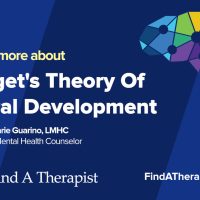Why Do I Have Nightmares Every Night?
Published on January 19th, 2022
Updated on January 7th, 2024

A nightmare is an uncomfortable and upsetting experience that we all go through sometimes. Some people have the occasional nightmare, while others find nightmares to be a common occurrence. Nightmares are never a fun experience but are connected to a person’s mental health.
A person can experience nightmares for different reasons. Factors include your mood during the day affects the recurrence of nightmares. If a person has a bad day or has unpleasant feelings, they are at risk of suffering from nightmares.
Some factors contribute to having nightmares. These factors alone may not cause a condition of nightmare disorder, which is described below. Each factor alone does put a person at risk of suffering from recurring nightmares. Such factors that may cause nightmares include:
Sponsored by

Choose a therapist to work with and start healing with 20% off from BetterHelp.
Click Here- Stress
- History of trauma
- History of abuse
- Traumatic injury
- Sleep issues
- Substance use
- Side effects from medications
Mental illness can also contribute to the experience of nightmares. People may experience nightmares if they suffer from the following mental health conditions:
- Insomnia
- Anxiety
- Depression
- Post-Traumatic Stress Disorder
- Specific phobia
- Addiction or substance use
- Alcoholism
- Nightmare disorder
Several medical conditions may contribute to the experience of nightmares. These conditions can also contribute to the development of nightmare disorder. Such medical conditions include:
- Coronary heart disease
- Parkinson’s disease
- Cancer
- Chronic pain
Nightmare Disorder
Nightmare disorder is a disorder in which a person suffers from distressing nightmares. These nightmares happen often and impact a person’s sense of wellness. They will also affect a person’s functioning and comfort when falling asleep.
A person suffering from nightmare disorder will have recurring dreams of threat or distress. These nightmares will recur at varying severities depending on the person. Some will suffer from short-term recurrences, and others will have chronic nightmares.
Some will have more severe nightmares than others. The frequency of nightmares will also be different between cases. The method of determining the intensity of a case of nightmare disorder is as follows:
Duration
The duration refers to how long a person has been struggling with nightmares. There are three levels of duration for nightmare disorder:
- Acute (nightmares recurring for less than one month)
- Subacute (nightmares recurring for one to six months)
- Persistent (nightmares recurring for more than six months)
Severity
The severity of nightmares refers to the frequency of recurring nightmares. The three levels of severity for nightmare disorder include:
- Mild (Nightmares recur regularly but less than once a week)
- Moderate (Nightmares recur at least once a week but not every night)
- Severe (Nightmares recur nightly or most nights)

Signs Of Nightmare Disorder
Nightmare disorder can significantly impact a person’s quality of sleep. The nightmares tend to wake an affected person during the night and make it hard to fall back asleep. More severe cases of nightmare disorder can also cause a fear of falling asleep.
Everyone has nightmares sometimes. It is not unusual for a person to have the occasional nightmare or bad dream. For most, a nightmare will be unpleasant, but may not affect a person for more than a few minutes. Many do not even wake from a nightmare.
There are criteria needed for a diagnosis of nightmare disorder. The criteria separate nightmare disorder from a normal experience of nightmares. It also helps with ruling out signs of another mental health condition. Signs of nightmare disorder include:
- Being suddenly awoken by the intensity of a nightmare
- Racing heartbeat or sweating in reaction to a nightmare
- Trouble with falling back asleep after a nightmare
- Themes in a nightmare relating to a threat to safety or personal integrity
- The content of the nightmare causes fear, anxiety, or distress
- Nightmares fit into categories for duration and severity
- Impairment of daily functioning due to the effects of the nightmares
- Feeling afraid to fall asleep
- Disturbing content of a nightmare that causes difficulty focusing on other things
Note: Symptoms of nightmare disorder are not due to side effects of substance or medication use. They are also distinct from other medical or mental health disorders. Seek a mental health professional for proper diagnosis and treatment.
Treatment Of Nightmare Disorder
It is important to get proper treatment when suffering from nightmare disorder. Without treatment, the nightmares are likely to persist and will continue to impact the affected person’s quality of life.
Consult with a doctor or mental health professional when struggling with nightmare disorder. They will be able to prescribe treatment. Proper treatment for nightmare disorder may include a combination of medication and therapy.
Therapy helps a person with nightmare disorder. It teaches them coping skills to make the experience of a nightmare less intense. Specific forms of therapy can help manage nightmares. The following are some types of treatment for nightmare disorder:
- Image Rehearsal Therapy (IRT). Involves rewriting and memorizing a more positive scenario for the nightmare.
- Systematic Desensitization. Uses gradual exposure to stressors in a nightmare. This is done to build coping methods and tolerance for feared situations.
- Hypnosis. Helps with addressing thoughts or behaviors in response to feared themes in nightmares.
- Self-Exposure Therapy. Allows the affected person to create a hierarchy of fears and confront each fear at their own pace.
Sponsored by

Find an affordable therapist online with 20% off from BetterHelp.
Click Here






Leave A Reply